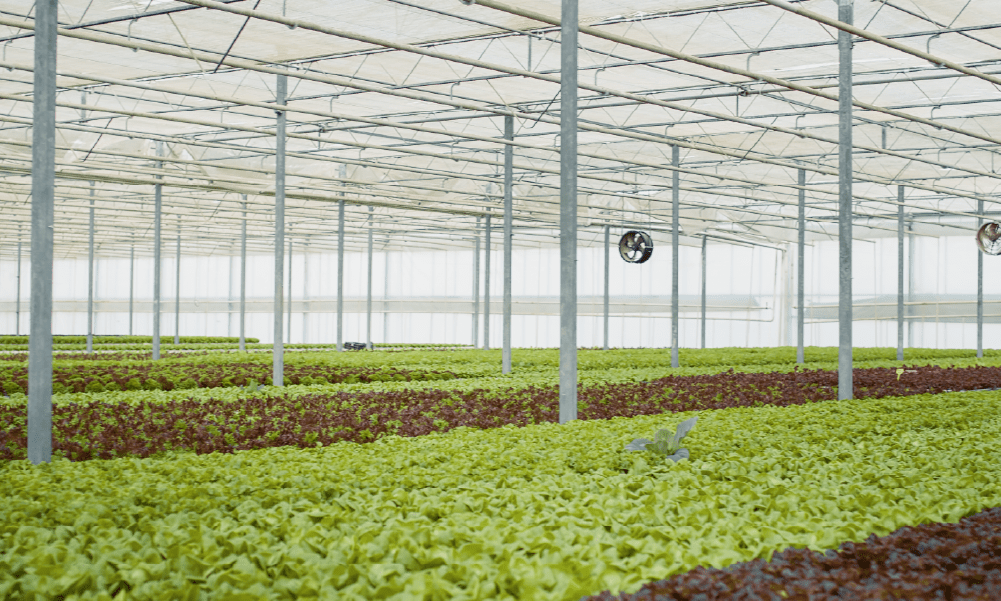In today’s fast-paced world, many are seeking ways to invest in assets that provide not only financial returns but also personal satisfaction and environmental benefits. One such avenue that is gaining popularity is managed farmlands. But what exactly are these farmlands, and why should you consider investing in them? Let’s dive into the top 25 reasons to choose managed farmlands in 2024.
What Are Managed Farmlands?
These are agricultural lands that are professionally managed by experts who oversee all farming operations, from planting to harvesting. This professional management ensures that the farmland is run efficiently and sustainably, providing consistent returns to investors.
The Growing Popularity of Managed Farmlands
With increasing awareness about sustainable practices and a desire for stable investment opportunities, managed farmlands are becoming an attractive option for many investors. They offer a unique blend of financial, environmental, and personal benefits that are hard to find elsewhere.
Top 25 Reasons to Choose Managed Farmlands in 2024

Let’s explore the Top 25 Reasons to Choose Managed Farmlands in 2024:
Professional Management
One of the key advantages of opting for managed farmlands is the assurance of professional management. Seasoned farm managers bring a wealth of knowledge and expertise to the table, ensuring that all operations are meticulously planned and executed for maximum yield and sustainability.
High Yield Potential
Managed farmland often incorporates cutting-edge farming techniques, such as precision agriculture, to unlock its full yield potential. These innovative methods leverage technology to monitor and manage crops more efficiently, resulting in heightened productivity and profitability.
Reduced Risks
While agriculture inherently carries risks, managed farmlands effectively mitigate these risks through strategic diversification and expert guidance. By diversifying investments across various crops and leveraging professional management, the inherent uncertainties of farming are significantly minimized.
Environmental Sustainability
A Managed farmland prioritizes environmentally sustainable practices. From minimizing chemical usage to implementing eco-friendly farming methods, such as crop rotation and soil conservation, these farms actively contribute to preserving and enhancing the surrounding ecosystem.
Enhanced Soil Health
Regular soil testing and meticulous soil amendments are standard practices on managed farmlands. By prioritizing soil health, these farms ensure that the land remains fertile and conducive to sustained agricultural productivity over the long term.
Water Conservation
Efficient irrigation systems are integral to managed farmlands. These advanced systems are designed to minimize water wastage while ensuring optimal water supply to crops, thereby promoting healthy growth and sustainable farming practices.
Access to Advanced Technology
A Managed farmland harnesses the power of cutting-edge agricultural technologies, including drones and sensors, to monitor crop health and soil conditions in real-time. This technological integration enables proactive adjustments and optimizations, ultimately enhancing overall farm productivity and efficiency.
Scalability
A Managed farmland offers investors the flexibility to scale their investment portfolios according to their preferences. Whether expanding land holdings or diversifying crop types, the adaptable nature of these farmlands allows for seamless adjustments to investment strategies.
Financial Security
With professional management and the potential for high yields, managed farmlands provide investors with stable and reliable income streams. This financial security serves as a significant advantage for individuals seeking sustainable and predictable returns on their investments.
Market Access
Managed farmlands typically boast established buyer networks, ensuring a readily available market for produced crops. This streamlined market access minimizes uncertainties associated with selling agricultural products and facilitates potentially higher profit margins.
Tax Benefits
Many jurisdictions offer attractive tax incentives for investments in agricultural lands. These incentives may include deductions for equipment, improvements, and even income generated from the farmland, providing investors with additional financial advantages.
Diversification of Investment Portfolio
Investing in managed farmlands allows investors to diversify their investment portfolios beyond traditional asset classes. By adding agricultural assets to their portfolios, investors can potentially reduce overall portfolio volatility and enhance risk-adjusted returns.
Inflation Hedge
Farmland investments are often regarded as a reliable hedge against inflation. As the value of farmland tends to appreciate over time in line with inflationary pressures, investing in managed farmlands can help safeguard investors against the erosion of purchasing power.
Long-term Appreciation
Managed farmlands have historically demonstrated a tendency to appreciate in value over the long term. This steady appreciation underscores the attractiveness of farmland investments as a means of building sustainable wealth over time.
Passive Income Generation
Managed farmlands offer investors the opportunity to generate passive income through lease agreements and revenue-sharing arrangements. This passive income stream allows investors to profit from their farmland investments without the need for active management.
Low Correlation with Stock Market
Farmland investments typically exhibit a low correlation with stock market fluctuations. This low correlation helps insulate farmland investments from the volatility of broader financial markets, providing investors with greater portfolio stability. Additionally, diversification benefits and risk reduction measures further enhance the resilience of farmland investments to systemic market risks.
Connection to Nature
Investing in managed farmlands provides individuals with a unique opportunity to reconnect with nature. Whether through recreational activities or simply enjoying the tranquillity of rural landscapes, farmland ownership offers a refreshing escape from urban life.
Healthy Living
A Managed farmland affords investors access to fresh, organic produce, promoting healthier dietary choices and lifestyles. By cultivating their own fruits and vegetables, investors can enjoy a closer connection to the food they consume and its nutritional benefits.
Community Building
Investing in farmlands often fosters meaningful engagement with local communities. Whether through participation in agricultural fairs, farmers’ markets, or community-supported agriculture programs, farmland ownership contributes to the social fabric of rural communities.
Educational Opportunities
Managed farmlands provide ample opportunities for learning and education. From participating in farm tours and workshops to gaining hands-on experience in agricultural practices, farmland ownership offers valuable insights into sustainable farming and food production.
Contribution to Food Security
By investing in managed farmlands, individuals play a crucial role in supporting local and global food supply chains. Farmland investments contribute to food security by ensuring the continued production of essential agricultural commodities for both local communities and broader markets.
Legacy Planning
Farmland investments can serve as a lasting legacy for future generations. By preserving and stewarding farmland assets, investors can pass down not only financial wealth but also a rich agricultural heritage and connection to the land.
Organic Farming
Many managed farmlands embrace organic farming practices, eschewing synthetic pesticides and fertilizers in favour of natural and sustainable alternatives. This commitment to organic farming promotes environmental health and produces high-quality, chemical-free food products.
Agroforestry
Agroforestry represents an innovative approach to land management that integrates trees and crops on farmland. This holistic approach enhances biodiversity, improves soil health, and diversifies revenue streams through the sustainable production of timber and non-timber forest products.
Smart Farming
The adoption of smart farming technologies is revolutionizing managed farmlands. By leveraging technologies such as the Internet of Things (IoT), artificial intelligence (AI), and data analytics, smart farms optimize resource utilization, minimize environmental impact, and maximize crop yields in an increasingly interconnected world.
Conclusion
We have covered the detailed guide on the Top 25 Reasons to Choose Managed Farmlands in 2024. These farmlands offer a compelling mix of financial, environmental, and personal benefits. From professional management and high yield potential to lifestyle advantages and innovative practices, there are countless reasons to consider this investment. By choosing managed farmlands, you’re not only securing a stable and profitable investment but also contributing to a sustainable and healthy future.
FAQs
Why are managed farmlands gaining popularity?
They are gaining popularity due to their unique combination of financial returns, environmental advantages, and stable investment opportunities, making them increasingly attractive to investors.
How do managed farmlands ensure high-yield potential?
They ensure high yield potential by employing advanced farming techniques such as precision agriculture, which leverage cutting-edge technology to maximize productivity and profitability across agricultural operations.
What environmental practices are prioritized on managed farmlands?
On these farmlands, environmental sustainability is prioritized through various practices including minimizing chemical usage and implementing eco-friendly farming methods such as crop rotation and soil conservation, thus actively contributing to preserving and enhancing the surrounding ecosystem.
What are the lifestyle advantages of investing in managed farmlands?
Investing in these types of farms provides lifestyle advantages such as access to fresh, organic produce, promoting healthier dietary choices and lifestyles, as well as opportunities for recreational activities amidst rural landscapes, offering a refreshing escape from urban life.
How do managed farmlands contribute to water conservation?
They contribute to water conservation through the implementation of efficient irrigation systems. These systems are meticulously designed to minimize water wastage while ensuring crops receive optimal water supply for healthy growth, thus promoting sustainable farming practices and environmental stewardship.





